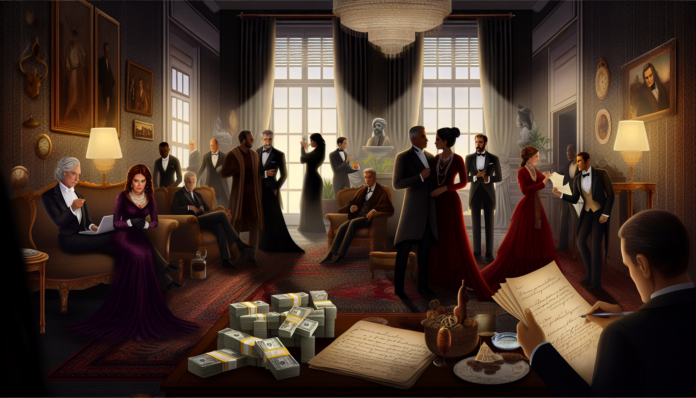Introduction
Throughout history, power and passion have often intertwined in scandalous ways. Notably, many dictators have been embroiled in sex scandals that reveal not just their moral failings but also the societal norms of their time. One such figure is Benito Mussolini, the Italian dictator whose tango with desire and political ambition created a scandal that reverberated through the fabric of early 20th-century Italy. In an era marked by strict gender roles and moral conservatism, Mussolini’s clandestine affairs illustrated the dichotomy between public perception and private indulgence.
The Scandal
Mussolini, known for his aggressive Fascist regime, held a notorious affair with Margherita Sarfatti, a Jewish journalist and art critic, from the 1910s to the 1920s. Their relationship, rife with passionate exchanges and intellectual debates, not only flourished in the shadows of Mussolini’s political climb but also had profound implications for his policies, particularly in regard to anti-Semitism.
- Key Events:
- Sarfatti introduced Mussolini to influential cultural circles, enhancing his image.
- Their affair became public around 1925, leading to a media frenzy, driven by Sarfatti’s writings that often romanticized the dictator.
- Mussolini’s wife, Rachele, was aware but chose to maintain a facade, reflecting the societal expectations of women to tolerate their husbands’ indiscretions.
Sarfatti’s literary prowess showcased Mussolini’s charisma and intellect, creating an intoxicating blend of romanticism and political ambition. Renowned Italian writer Filippo Tommaso Marinetti declared Mussolini to be “the Emperor of passion,” reflecting both admiration and public fascination. The vibrant press of the time eagerly covered the scandal, illustrating the stark contrast between Mussolini’s harsh public persona and his private escapades.
Moral and Cultural Analysis
The societal reaction to Mussolini’s affair was complex. The early 20th century was characterized by strict adherence to conventional morality. While many Italians were initially scandalized, others were intrigued, viewing the affair as a testament to Mussolini’s virility.
- Consequences:
- Sarfatti eventually became ostracized during Mussolini’s later regime, especially as Italy adopted anti-Semitic laws.
- The affair’s fallout damaged Sarfatti’s career, underscoring the patriarchal structures that penalized women, even those in influential roles.
Modern perspectives offer a stark contrast. Today, Mussolini’s infidelities would likely provoke outrage, especially given the growing awareness of gender dynamics and the implications of power. Social media would amplify dissent, encouraging public discourse around misogyny and the exploitation of power dynamics in relationships.
In a contemporary setting, each revelation would not just fuel gossip but spark conversations about consent, the role of women in patriarchal societies, and the responsibilities of those in power. Mussolini’s public persona—and the affairs that shadowed it—highlight the persistent struggle over sexual ethics and public duty.
This scandal illuminates the contradictions that often define the lives of historical leaders, revealing how personal desires can complicate political legacies. As history unfolds, the narratives of these powerful figures continue to captivate, serving as reminders of the intricate dance between passion, power, and societal norms.

